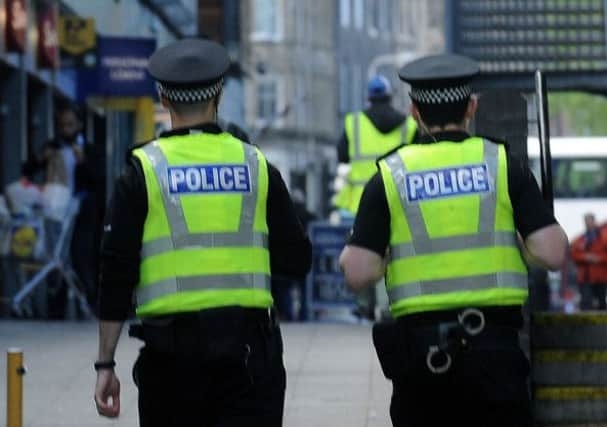Toxic culture puts public at risk, warn officers


In letters and e-mails to Scotland on Sunday the officers, who worked for the Lothian and Borders and Fife forces, claimed policing has been “catastrophically damaged” since the single force was set up last April, putting staff and the public “at risk”.
The officers, who do not wish to be named, said the “old Strathclyde policing method” is being applied across Scotland under Chief Constable Sir Stephen House’s leadership.
Advertisement
Hide AdAdvertisement
Hide AdThis included pressure to carry out “stop and search” on more people, they claimed. One officer said specialist squads, dubbed the “stop search” teams, had been created in some areas to increase the number of searches, supposedly to curb violent crime.
Another claimed 999 calls sometimes “sat unanswered” due to low staffing levels.
Although Police Scotland has claimed the number of officers has remained stable, around 800 civilian staff have been cut since April 2013.
Graeme Pearson, Labour shadow justice minister, said the claims were “concerning”. He said officers had stopped him on the street to express similar views. “I have brought up the issue of stop and search quotas ad nauseam in [the justice] committee, but the powers-that-be say it does not happen,” he said. “And here we are with a serving police officer saying it is happening.
“There seems to be an absence of effective communication across Police Scotland. There have also been concerns repeatedly raised about high levels of stress and increasingly long hours in the force.”
The claims come in the wake of calls for a debate into openly arming Scotland’s police, after it emerged armed officers in three forces were routinely carrying guns on patrol.
The practice was highlighted this year by Highlands MSP John Finnie, after a constituent spotted an officer carrying arms. But the issue was not publicly discussed before it was introduced in April 2013. The latest claims echo concerns raised about transparency in the new force, created from eight regional forces.
“I believe policing in Scotland has been catastrophically damaged as a result of the creation of the Police Service of Scotland,” said one Edinburgh officer. He said the “Divisional Violence Reduction Unit” and “flexi teams” in Edinburgh were known as the “stop search team”.
Advertisement
Hide AdAdvertisement
Hide Ad“It has been made clear to these officers that their primary function is to go out onto the street and search people,” he said.
The officers claimed police were facing an increasing workload and said more staff were being signed off sick as a result of the changes.
“The policing culture is now toxic,” the Edinburgh officer said. “Officers are under constant threat of discipline and the sack, but front-line officers are being required to undertake a much heavier workload.”
An officer serving in Fife claimed busy stations such as Dunfermline and Kirkcaldy sometimes have only four uniformed officers on duty responding to calls.
“The damage that the creation of Police Scotland has done to regional/local policing will take years to undo,” he said. “There is no public confidence any more.”
He added: “The old Strathclyde policing method is being applied throughout Scotland and this method is certainly not effective or in the interest of the people of Fife.”
Police Scotland yesterday insisted there was “no evidence” for many of the officers’ claims.
Assistant Chief Constable Mike McCormick said: “The introduction of a single policing service has been a significant development.
“All of Scotland has benefited from having equal access to a range of specialist services and expertise drawn from all parts of Scotland to ensure we are providing the best possible service.”